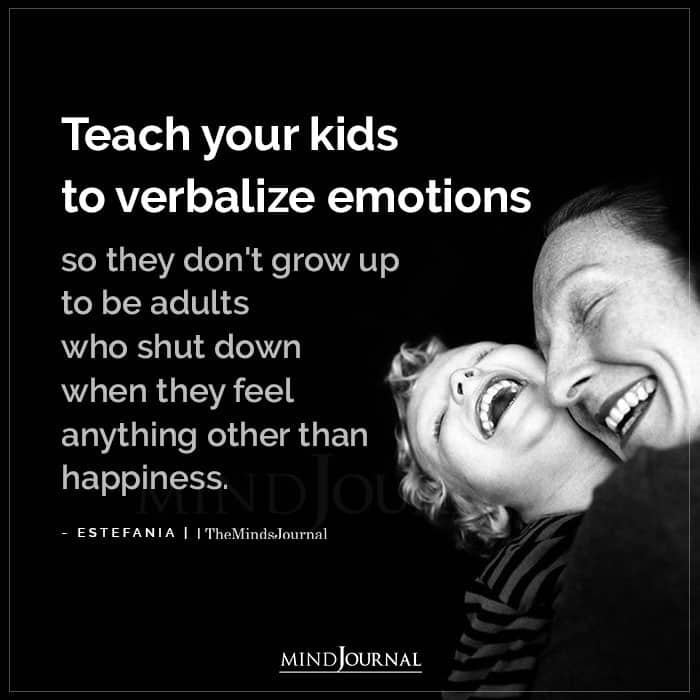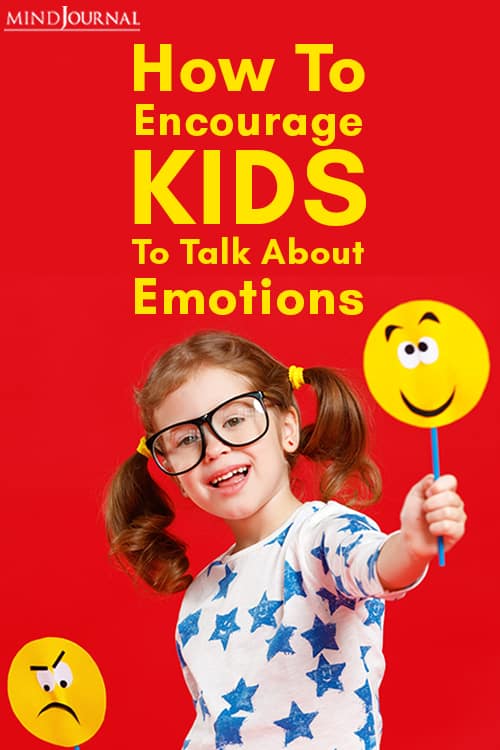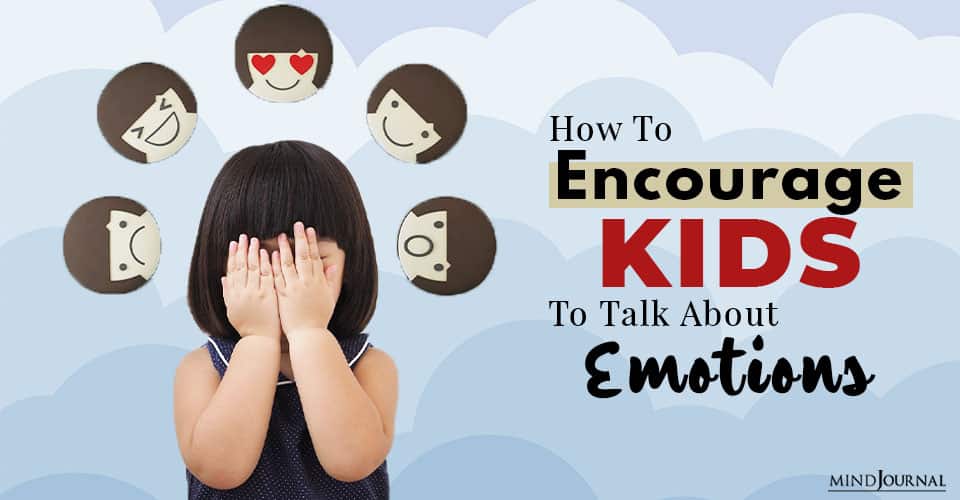Children always look towards their parents for guidance, be it emotional or physical. Because they are children, they have a hard time dealing with the various emotions they feel. As a parent, it is your responsibility to help them develop a certain degree of emotional competence, so that they can thrive and process all their emotions better.
Last week I was outside in the backyard with my 4-year-old son, immersed in conversation about his swim lesson that upcoming Saturday. We were talking about how excited he was about the lesson, how he was looking forward to playing games with his teacher, and how he might even put his head underwater that week.
Then all of sudden, out of nowhere, he started screaming that he didn’t like the snack that he was happily eating only a few minutes before. When I dared to ask him why he no longer wanted the snack, there was more yelling, than crying, and before I knew it, the snack was on the ground.
I thought to myself (as any parent would):
What in the world just happened?
My typically level-headed son went from happy-go-lucky to a full-blown tantrum in under 30 seconds. Unfortunately, when you’re dealing with a 4-year-old, this is just par for the course; temper tantrums are common, as are seemingly unreasonable outbursts of emotion.
The problem with young children is that they are able to feel an unlimited number of emotions in response to any event in their lives, but they don’t have a great deal of control over those emotions, they have a hard time recognizing why they are feeling what they’re feeling, and they have trouble anticipating how you might react to their emotional outbursts.

Emotional competence — or how children learn to express and control those emotions and recognize the emotions of others — is an important predictor of all sorts of positive outcomes for children, including starting and maintaining positive social relationships, and even academic performance (Denham, 2019).
This makes sense, as emotional competence is what helps children form and develop relationships with their parents, teachers, and peers; it is how they are able to control their own emotions so that they can concentrate on schoolwork, and behave appropriately in response to the needs of others. Further, children who lack emotional competence are at risk for peer rejection, difficulty in school, and emotional and behavioral problems.
Read 10 Scientifically Proven Tips To Raise Happy Kids
How Does Emotional Competence Develop And How Can We Encourage It In Our Own Children?
To some extent, there are aspects of emotional competence that have a biological basis; indeed, some children are just more sensitive than others and are thus more prone to experiencing intense emotional reactions.
Luckily, we are not completely bound by our biology, and one of the key predictors of emotional competence happens to be something that parents can do at home, which is to talk about emotions with their kids.
Emotion talks predict children’s later emotional understanding and their ability to regulate emotional responses (Denham, 2019). Furthermore, talking about emotions can also predict important prosocial behaviors. For example, in a storybook interaction between parents and their toddlers, parents who talked more about emotions while reading the book had 18 to 24-month-old children who helped and shared more than parents who engaged in less emotional talk (Brownell, Svetlova, Anderson, Nichols, & Drummond, 2013).
While at first blush, it might seem easy to talk about emotions with your kids, it’s mostly easy to talk about good feelings; it’s a lot harder to talk about the bad ones. In fact, in Western cultures, parents typically try to increase children’s expression of positive emotions and minimize the expression of negative emotions (Pérez-Edger, 2019).
As in the popular movie Inside Out, while Joy is always embraced, Sadness is often ignored or dismissed. Importantly, research suggests that parents can play a role in helping children develop emotional competence by encouraging their children to talk about negative emotions, which can help children understand what causes negative emotions and how to appropriately express them (Zeman, Cameron, & Price, 2019).
However, while some parents encourage children to talk about emotions like sadness, others ignore or even punish children for expressing negative emotions. As a result, these children may have trouble learning how to cope with negative emotions themselves, are less emotionally expressive, and might be more prone to developing emotional problems (Zeman, Cameron, & Price, 2019).
Read Emotional Intelligence in Kids: 3 Tips To Help Your Child Navigate Difficult Emotions
This is an especially important issue for boys. Parents use more emotional words with their daughters than with their sons, and even sing to their baby girls more than they sing to their baby boys (e.g., Mascaro, Rentscher, Hackett, Mehl, & Rilling, 2017). Furthermore, while girls are generally encouraged to express negative emotions like sadness, boys’ expressions of sadness are more often dismissed (Zeman, Cameron, & Price, 2019).
And it’s not just by parents — peers also discourage boys (but not girls) from expressing sadness and there’s more teasing associated with expressions of sadness in boys than in girls (Perry-Parrish & Zeman, 2011).
Given the importance of emotional competence in so many areas of development, some researchers have suggested that teaching children emotional skills in school might be beneficial. Interventions aimed at teaching children emotional knowledge have been effective in increasing emotional competence and prosocial behaviors.
For example, reading children’s stories rich with emotional language has been shown to improve children’s emotional competence of children is later encouraged to talk about the content of the stories with a peer (Grazzani & Ornaghi, 2011). Similarly, children who received training with emotion labels and their causes showed significant improvement in emotion knowledge (Salmon, et al 2013).
Further, similar interventions that encourage children to have conversations about emotions led to changes in children’s understanding of when to behave prosocially, such as when to share and help others (Ornaghi, Grazzani, Cherubin, Conte, & Piralli, 2015)
The take-home message here is that talking to kids about emotions — both the good ones and the bad ones — can have a lot of benefits for children’s emotional competence, especially for boys. Talking about emotions can help children process their feelings and better recognize different emotions in themselves and in others.
Read 10 Simple But Vital Life Lessons To Teach Kids Before They Turn 10
And although this might seem easy when children are happy, it might be more challenging in the face of negative emotional responses, like a temper tantrum. But even when a child’s emotional reactions make you angry or upset, it’s important to remember that when children exhibit negative emotions, they are often just looking for support, so perhaps a short talk can go a long way.
Written By Vanessa LoBue
Originally Appeared In Psychology Today
If you can help your child develop a healthy amount of emotional competence, you will see how they thrive and deal with their emotions in a healthy manner. The more you help them and support them, the more positive they will feel about themselves and will look towards having healthy reactions to even the most undesirable situations.











Leave a Reply